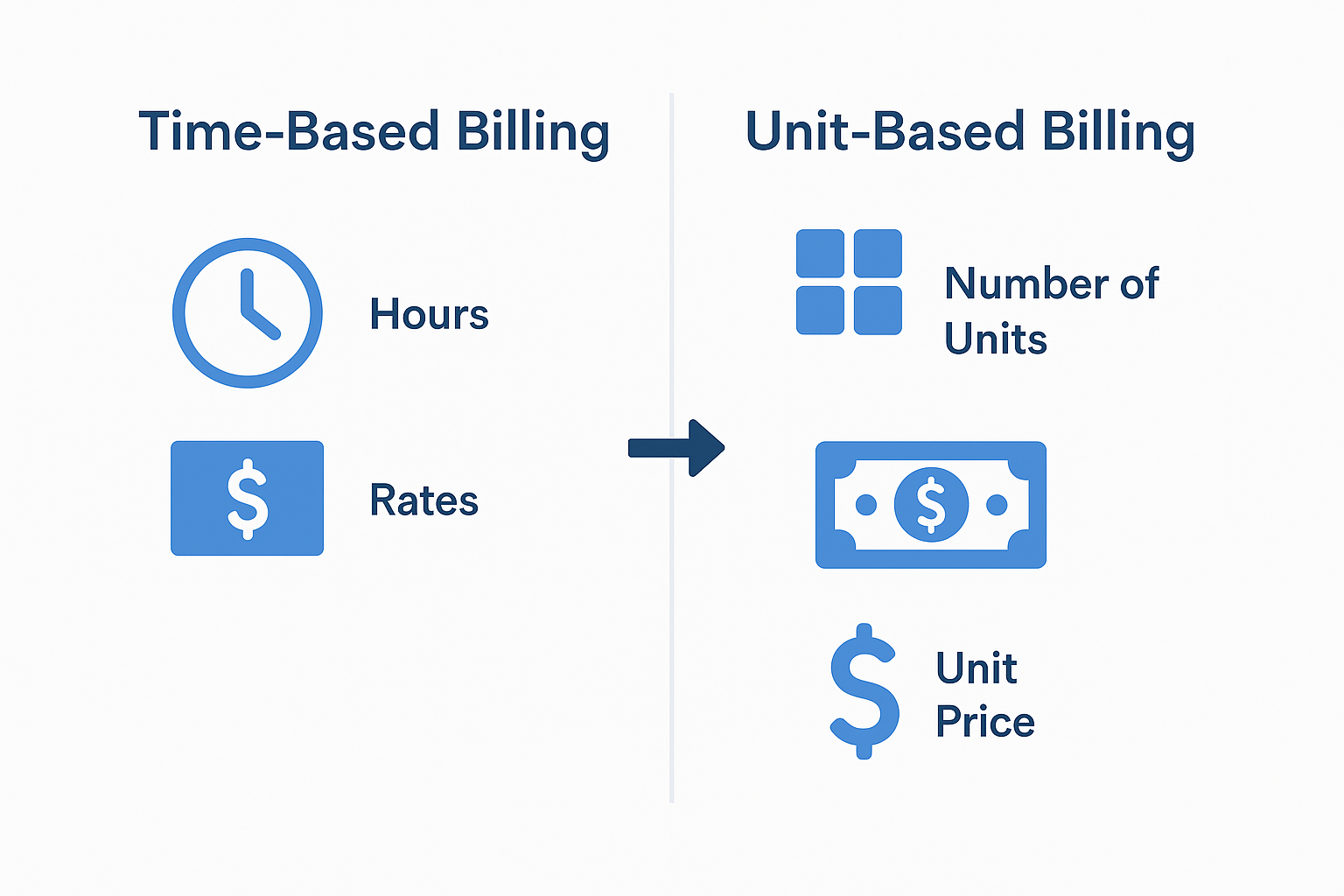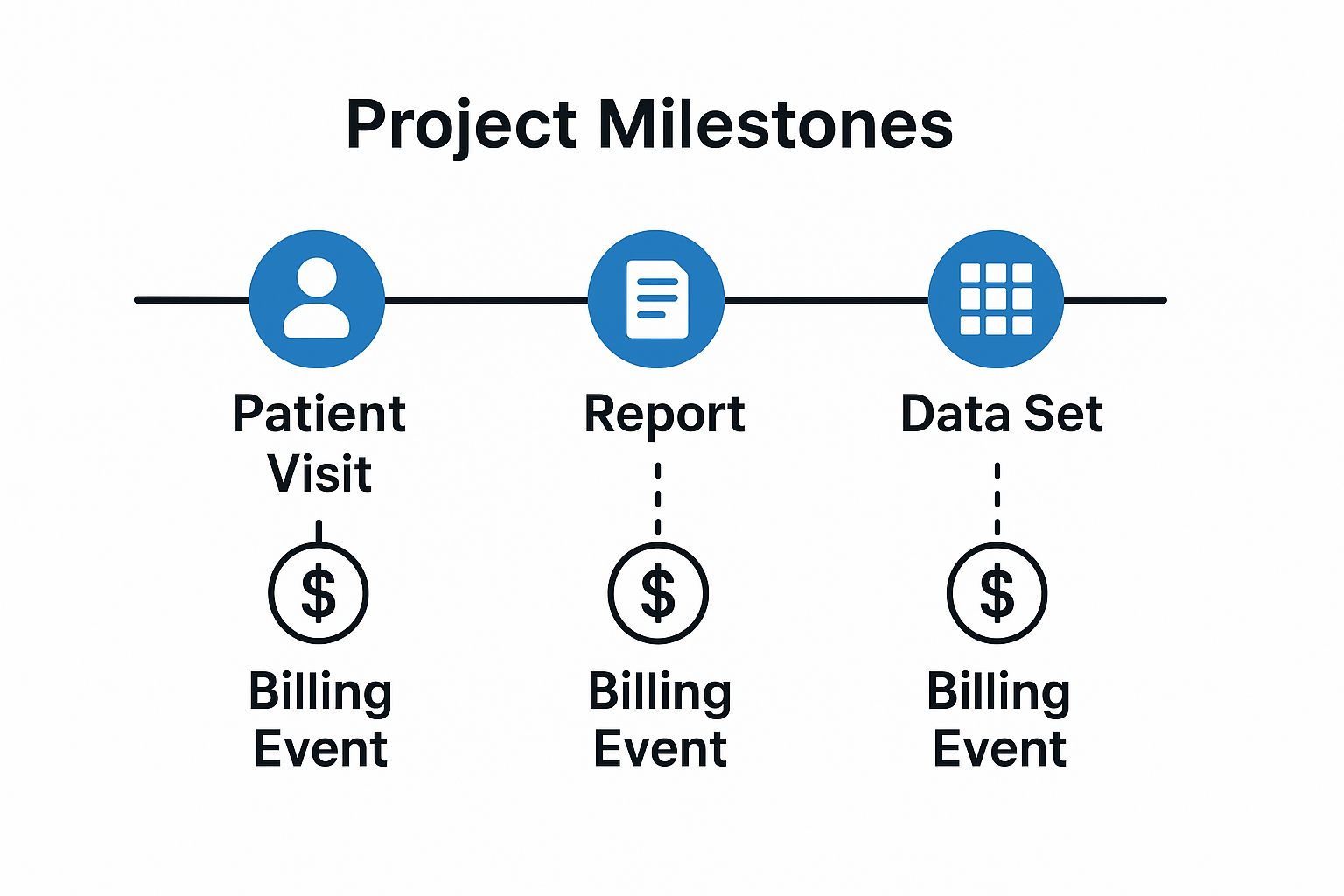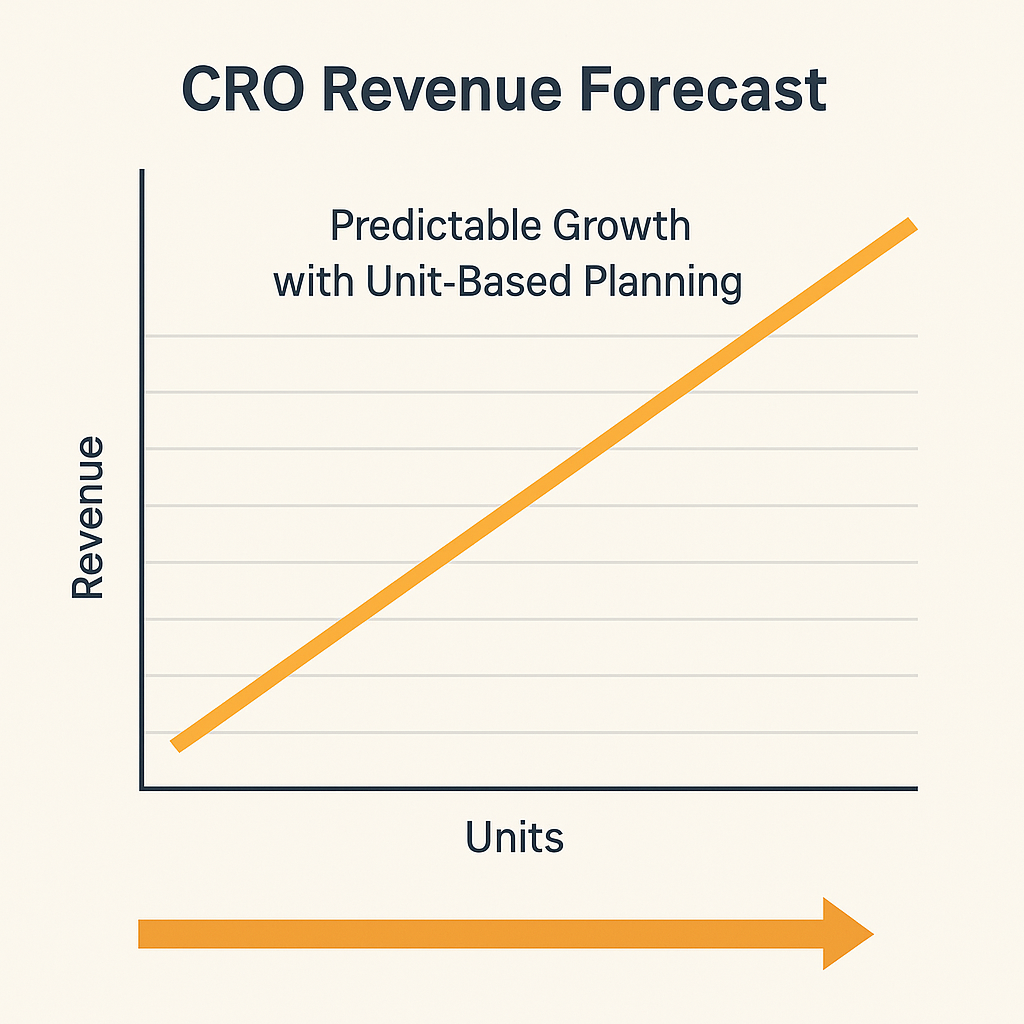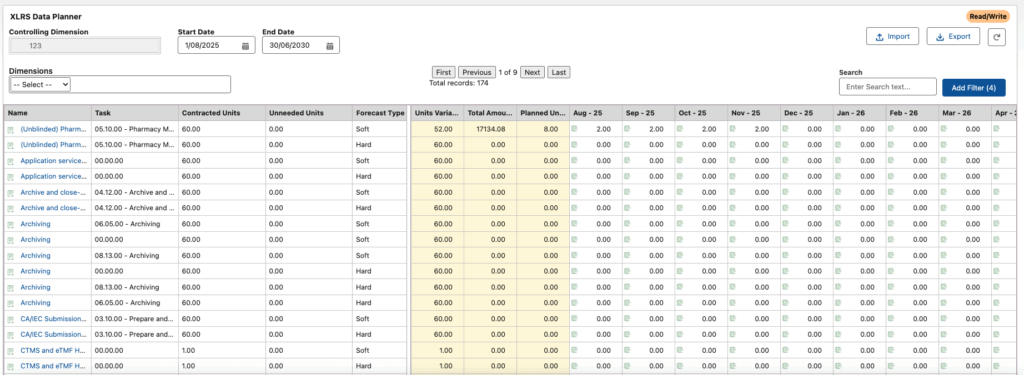CRO Billing and Unit-Based Planning: The Complete Guide for Clinical Research Operations
Understanding the CRO Business Model and How It Differs from Other Service Industries
Clinical Research Organizations (CROs) work as outsourced partners for pharmaceutical, biotech, and medical device companies, handling complex, regulated clinical trials. Unlike many service firms that bill for hours worked, CROs most commonly bill for units of completed work — such as patient visits, lab results, or completed reports – though some also use time-based or other billing approaches.
Why it matters: This unit-based approach affects how CROs plan, forecast revenue, and deliver services efficiently.
Examples of CRO Leaders
- Avance Clinical — early-phase trial expertise.
- Emerald Clinical Research — full-service trial management.
- Biomapas — multi-regional regulatory and clinical services.

CRO Billing: Why Units Drive Revenue Instead of Hours
Traditional service firms use time-based billing, but CROs tie revenue directly to deliverables. A sponsor might pay for 1,000 patient visits at $250 each — regardless of how many hours those visits take.
Key Advantages of Unit-Based CRO Billing
- Predictable costs for sponsors.
- Transparent progress tracking.
- Easier to adjust scope without renegotiating rates.

Unit-Based Planning in Clinical Research Operations
Unit-based planning breaks projects into measurable deliverables and schedules them over time.
How Unit Planning Works
- Contract defines total units, price per unit, and deadlines.
- Units are scheduled over the project timeline.
- Progress is tracked in real-time.
- Completed units trigger billing.

The Operational Challenges of CRO Unit Billing
Despite its advantages, unit-based planning can cause operational headaches:
- Units may complete earlier or later than planned.
- PSA and ERP systems often default to time-based tracking.
- Manual reconciliation between delivery and billing is common.
Certinia PSA CRO Add-on — Closing the Gap
Mainstream PSA tools like Certinia PSA Cloud are often time-based by design. CROs need a solution that integrates unit planning directly into their PSA/ERP system.

The XLRS (Exceleris) Unit Planning Solution
Exceleris Consulting has developed a unique Unit Planning capability that works seamlessly with Certinia PSA Cloud.
Benefits of the Exceleris Approach
- Plans are built around units, not hours.
- Unit delivery automatically links to billing schedules.
- Forecasting is based on completed and projected units.
- Eliminates manual reconciliations and spreadsheet dependency.

Why CRO Leaders Need Unit-Based Planning
If you’re a COO, project manager, or customer success manager in a CRO, getting unit-based planning right means:
- Confident cash flow prediction.
- Streamlined operations.
- Sponsor satisfaction through clear reporting.

Take the Next Step in CRO Billing Transformation
Exceleris Consulting offers a free initial consultation and workshop to help CROs see how Unit Planning can transform operations.
What You’ll Get in the Workshop
- Live demo of unit-based planning in Certinia PSA Cloud.
- Sample forecast using your real unit data.
- Tailored roadmap for operational change.
